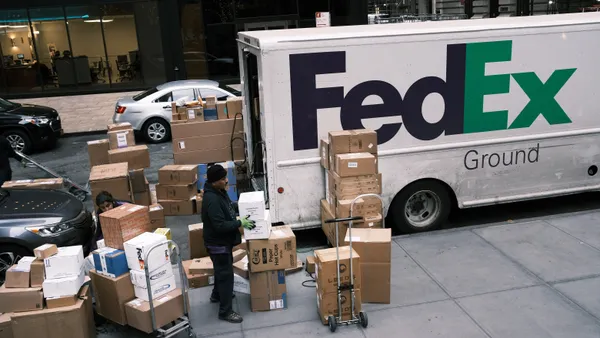Dive Brief:
- Delivery costs for Macy's declined YoY in Q2 after the department store retailer renegotiated carrier contracts for improved rates, CFO and COO Adrian Mitchell said in an earnings call last week.
- Delivery expenses fell 50 basis points from Q2 of 2022, when they accounted for 4.5% of net sales. Beyond improved rates, lower fuel costs and reduced volume direct from vendors also trimmed costs in this category.
- Mitchell did not specify which contracts Macy's renegotiated, but the company uses UPS and the U.S. Postal Service to deliver packages, in addition to DoorDash for same-day delivery.
Dive Insight:
Elevated shipping costs had been a thorn in Macy's side for a while. In 2022, Mitchell outlined the reduction of delivery expenses as a top priority for the company after peak season surcharges bit into its holiday results.
"Delivery expense has been a part of some of the cost savings initiatives that we've thought about, which impacts the combination of the placement of our goods within our system and also how we think about the processing of our delivery," Mitchell said on last week's call.
Pricing power has been tilted in carriers' favor for years after the COVID-19 pandemic turbocharged home delivery activity and led to elevated demand for their services. But volumes are now declining from those heights at top carriers like FedEx and UPS, which experts say has made them more amenable to offering better discounts for shippers like Macy's.
In Q3, per-package ground parcel shipping rates are projected to see their first YoY decline since 2019, according to the TD Cowen/AFS Freight Index. The index attributes this expected drop to continued demand shortfalls and aggressive discounting on the part of carriers. Fuel costs have also declined, with the net effective fuel surcharge decreasing 8.7% quarter-over-quarter in Q2, according to the index.














